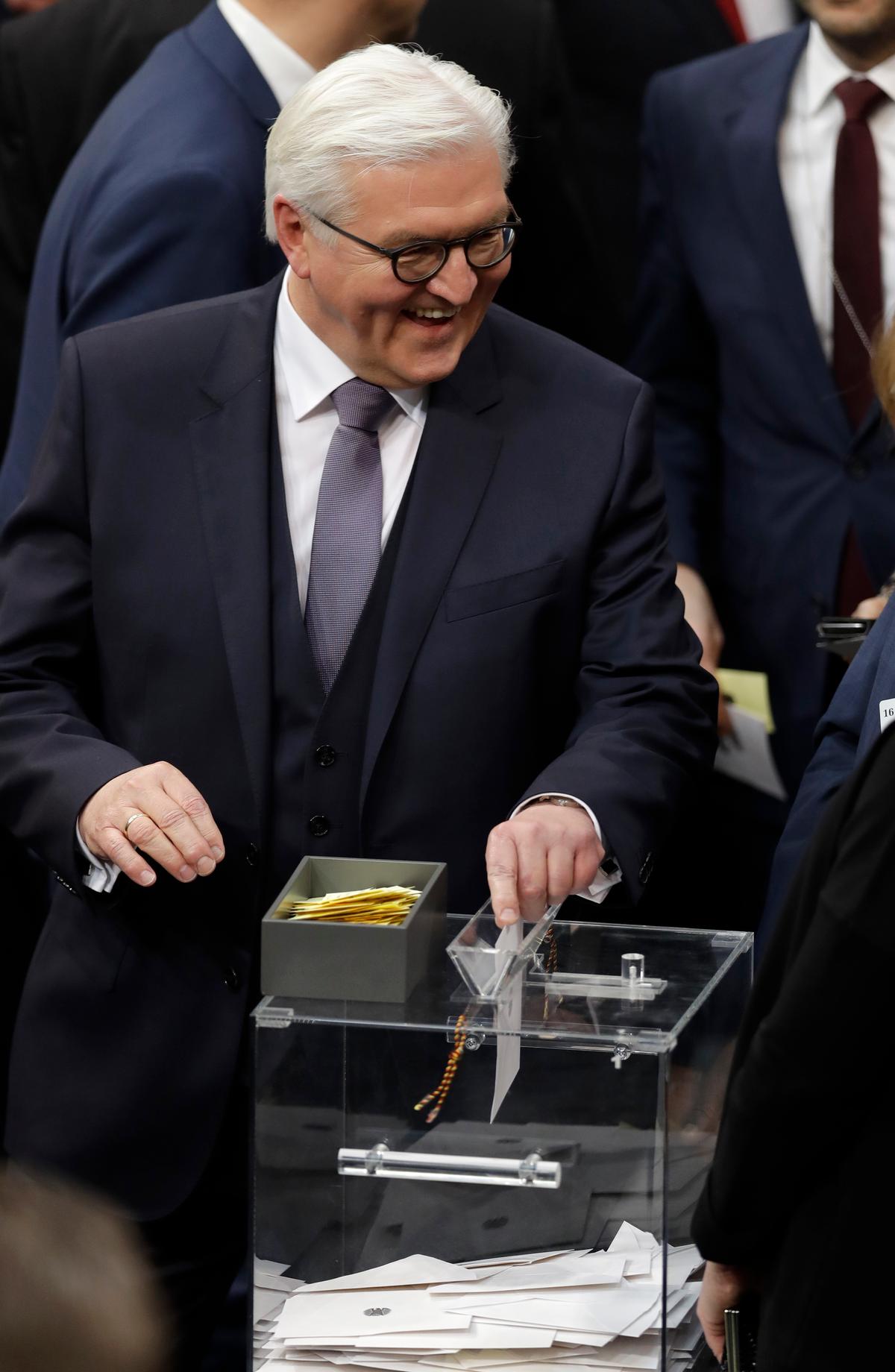BERLIN—A special assembly elected former German foreign minister Frank-Walter Steinmeier by an overwhelming majority Sunday to be the country’s new president.
Steinmeier was elected in Berlin by the assembly made up of the 630 members of parliament’s lower house and an equal number of representatives from Germany’s 16 states.
He received 931 of the 1,260 votes. Steinmeier succeeds Joachim Gauck, a 77-year-old former pastor and East German pro-democracy activist who did not seek a second five-year term because of his age.
The German president has little executive power, but is considered an important moral authority and symbol of the country as its host for visiting dignitaries.

German presidential candidate Frank-Walter Steinmeier casts his ballot when a German parliamentary assembly came together to elect the country's new president in Berlin Germany on Feb. 12, 2017. AP Photo/Michael Sohn





